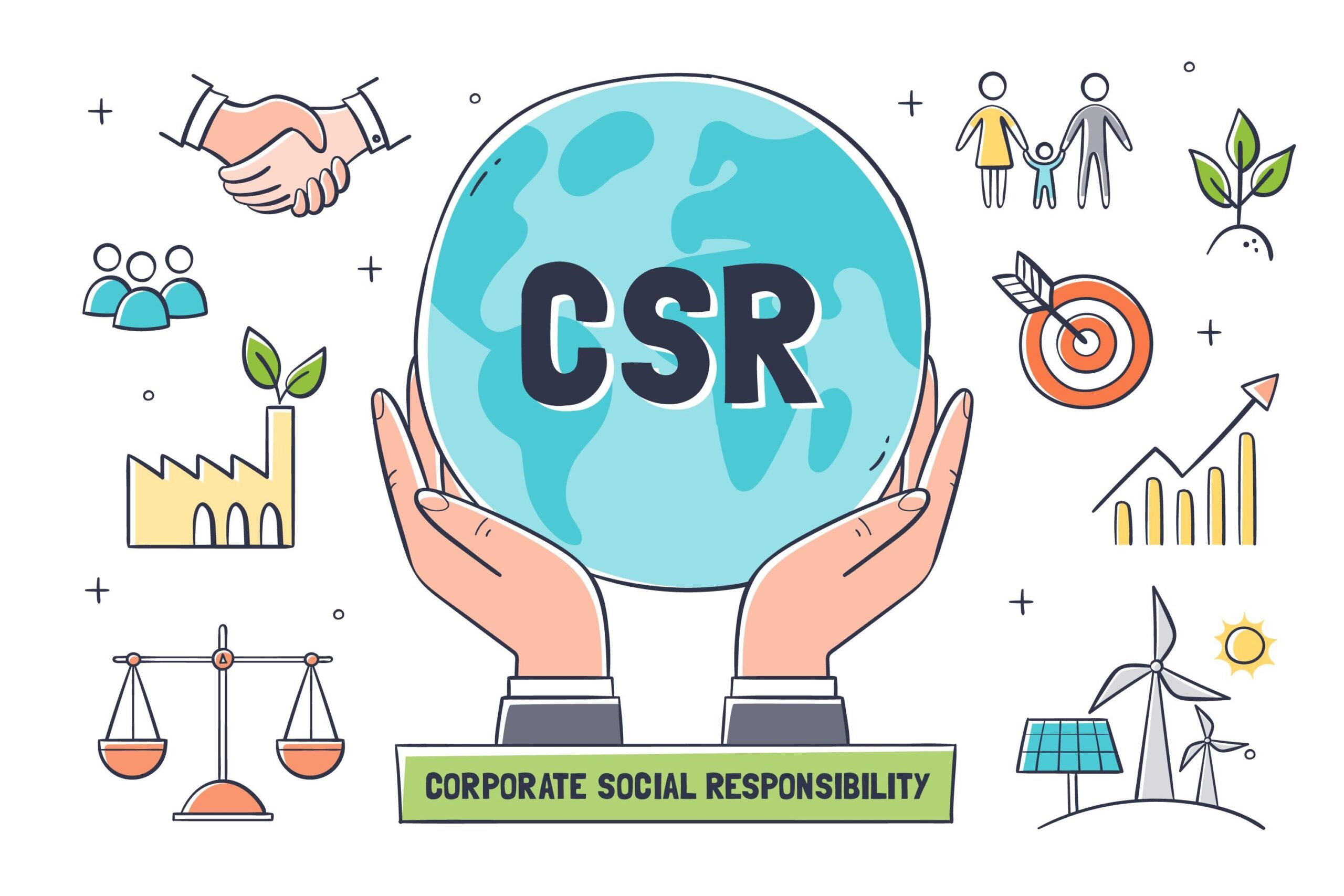In today’s increasingly interconnected and socially conscious world, businesses are no longer solely judged by their financial success. Instead, stakeholders, including customers, employees, investors, and communities, expect companies to contribute positively to society and the environment.
This expectation has led to the rise of Corporate Social Responsibility (CSR), encompassing various activities aimed at making a meaningful difference beyond profit generation.
Introduction to Corporate Social Responsibility (CSR)
Corporate Social Responsibility, often abbreviated as CSR, refers to a business practice that involves initiatives designed to benefit society and the environment, beyond the company’s financial obligations. It encompasses a broad range of activities aimed at fostering sustainability, ethical behavior, and community engagement.
Types of CSR Activities
CSR activities can be categorized into several key areas, each addressing different aspects of social and environmental responsibility.
Environmental Sustainability Initiatives
One of the primary focuses of CSR is environmental sustainability. Companies undertake various initiatives to minimize their ecological footprint and promote sustainable practices.

Philanthropy and Community Engagement Programs
CSR also includes philanthropic efforts and community engagement programs aimed at improving the well-being of local communities and addressing societal needs.
Ethical Labor Practices
Ensuring fair and ethical treatment of employees is another crucial aspect of CSR. This includes providing safe working conditions, fair wages, and promoting diversity and inclusion within the workforce.
Corporate Governance and Transparency
CSR extends to corporate governance and transparency, emphasizing ethical business practices, accountability, and compliance with regulations and standards.
Benefits of Corporate Social Responsibility
Embracing CSR can yield numerous benefits for businesses, including enhanced brand reputation, increased employee satisfaction and retention, and positive societal and environmental impact.
Challenges and Criticisms of CSR
Despite its merits, CSR is not without challenges and criticisms. Issues such as greenwashing, difficulty in measuring impact, and balancing profit motives with social responsibility pose significant obstacles.
Case Studies of Successful CSR Initiatives
Several companies have successfully implemented CSR initiatives, demonstrating the tangible benefits of socially responsible business practices.
How to Implement CSR in Your Business
Implementing CSR requires careful planning and alignment with the company’s values and goals. Businesses must engage stakeholders, develop a clear strategy, and integrate CSR into their core operations.

Measuring the Impact of CSR
Measuring the impact of CSR initiatives is essential for evaluating effectiveness and demonstrating value. Key performance indicators and social return on investment are commonly used metrics for assessing CSR outcomes.
Future Trends in Corporate Social Responsibility
Looking ahead, CSR is expected to become even more integral to business operations, with a focus on stakeholder engagement, technological innovation, and sustainable business models.
Conclusion
Corporate Social Responsibility is not just a moral imperative; it’s a strategic business practice that benefits companies, society, and the planet. By embracing CSR, businesses can create value beyond profits and contribute positively to the world around them.
FAQs (Frequently Asked Questions)
What is corporate social responsibility (CSR)?
Corporate social responsibility (CSR) refers to a business approach that involves initiatives aimed at benefiting society and the environment, beyond financial obligations.
Why is CSR important for businesses?
CSR is important for businesses as it enhances brand reputation, fosters employee satisfaction, and contributes to positive societal and environmental outcomes.
How do CSR activities benefit society?
CSR activities benefit society by addressing social and environmental issues, supporting local communities, and promoting sustainable practices.
Can small businesses also participate in CSR initiatives?
Yes, small businesses can participate in CSR initiatives by aligning their values with community needs, implementing sustainable practices, and supporting local causes.
What are some examples of companies with successful CSR programs?
Companies like Patagonia, Unilever, and Microsoft are known for their successful CSR programs, which include environmental conservation efforts, philanthropy, and ethical labor practices.




